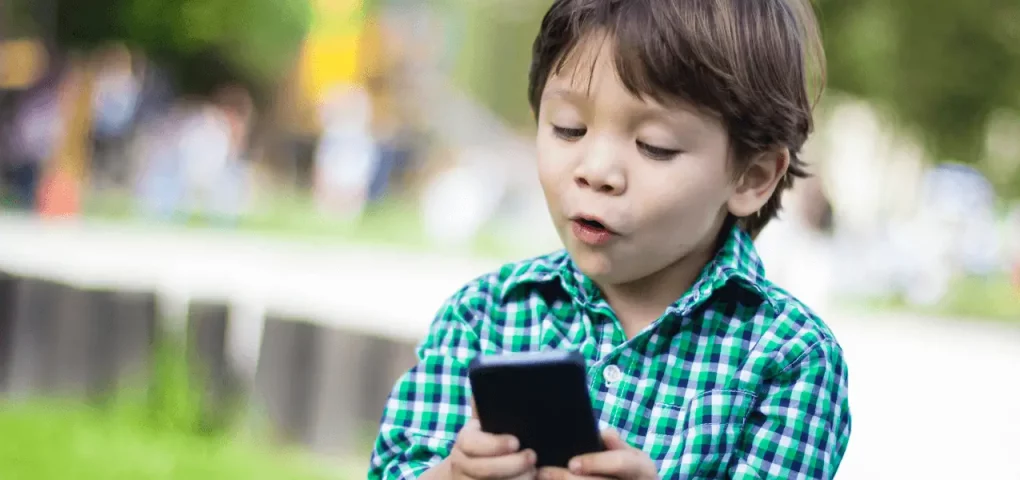
Being able to talk, understanding what is being said, and knowing how to reply are essential skills for any human being. Having the ability to communicate well helps a person create a community, learn, and enjoy life fully.
This is why language skills development is an interesting process in your child’s growth. Usually, toddlers start talking between 12 and 18 months. They are like sponges and will learn quickly once they have reached this milestone.
As your child’s first teacher, you’re probably wondering what you can do to help your baby talk and express themselves using words.
So in this article, let’s talk about language milestones and some ways you can help your child develop language and speaking skills smoothly. Plus, we’ll also talk about how you can enjoy the process of having to get your toddler to talk. Because who says you can’t have fun too?
Language Development from Birth to 3 Years of Age

Although language skills development is a slow process in younger children, it starts as early as when your child is born.
0 to 6 Months
At 0 to 6 months of age, babies start making sounds like cooing or babbling. They can already understand that you are speaking and can turn their heads in the direction of your voice or other sounds.
At this stage, your baby is starting to understand the process of language and communication. It becomes easier for them to follow directions, respond to their name when called, and often say their first word as time goes by.
7 to 12 Months
From 7 to 12 months, babies understand simple words like “no” and “yes.” They will start to use gestures to communicate and begin building a vocabulary from one to three words as they try to communicate.
Typically, a baby starts to speak their first words after turning 1. So if your 10-month baby isn’t saying “Mama” or “Dada,” there’s no need to freak out just yet. Plus, it’s normal for some kids to be late talkers. But if you suspect your toddler is suffering from speech delay, you may consult with a speech specialist.
13 to 18 Months
Beginning 13 to 18 months, your child’s vocabulary begins to expand from 8 to 20 words or even more. They are able to understand and follow simple one-step directions and will look at you when talking.
They will start repeating words and say “hi” or “bye” when reminded. They like to use the expression “uh-oh” and can point to or use one word to ask what they want.
At this stage, they can start identifying objects in a book too.
19 to 36 Months
Congratulations! Your efforts in getting your toddler to talk are starting to pay off as they finally develop independence and gain a sense of self. They begin to show that they understand the meaning of other people’s comments, questions, requests, or stories. They have an awareness of what kind of question is being asked.
For example, if you say, “Where is your truck?” They will start looking around for it. They understand “no,” “not,” and “don’t.” Your toddler would also recognize the names of most things in their environment.
The latter part of the toddler years is also the best developmental stage. This is when your child will start laughing at silly jokes and develop rhymes with nonsense words.
11 Ways to Get Your Toddler to Talk

Tip # 1: Get your child's attention.
Go down at eye level or sit beside your little one. Call their name before you speak slowly with them. Talk about the things that you can see right in front of you. This will help them learn a language and what words mean.
Tip # 2: Have some fun.
Play as much as you can. Sing, dance, make funny faces, and all the sounds you think can get your toddler to talk. Be as silly as you can be to get their attention and make them laugh. These activities encourage the development of your child’s language skills.
Tip # 3: Give comments and avoid asking too many questions.
Asking too many questions can make your child feel like they are being tested. Try to create a simple conversation instead. Observe what your baby is doing and what is happening around you. This will be helpful as your child learns what words mean.
Tip # 4: Allow your child some time to think.

Children need more time to think about the things they hear about. It also takes them an extended time to think about their response. So allow them time to process information and look at them patiently while waiting for your toddler to talk and say something.
Tip # 5: Use simple words, phrases, and sentences.
When talking to your child, use short sentences like: “Time to eat!” or “Shower time!” It’s easier for them to copy short words and sentences and easier for them to remember.
Tip # 6: Repetition is the key.
Say the words and sentences over and over again. Babies and toddlers need to hear words and sentences repeated many times before they can understand and learn new words.
Tip # 7: Help them focus.
Children are notoriously easy to distract. Taking out all the distractions such as music, TV, or the radio can help your child focus on you and what you are saying. Every language skills development session with your child becomes a lot easier and more successful if you keep them away from these sources of distraction.
Tip # 8: Add to what they say.
Add more words to your toddler’s vocabulary. This will help your child take a step closer to the next stage of talking. If your child points to something and says, for example, “Cat.” You can say, “Yes, fat cat.”
Tip # 9: Use your mother tongue at home.
Kids need to learn their first words and sentences in their mother tongue. Your child can always learn a new language or more later in school or watching TV or movies.
Tip # 10: Read to them every day.

Add reading to your child’s everyday activities as it is one of the best ways to help your child develop language and speech abilities. A study done in 2016 talked about how children are exposed to a wider variety of words through picture books read to them compared to having adults speak to them.
In addition to that, research shows that reading your child one book a day exposes them to 1.4 million more words than other kids who aren’t read to.
Tip # 11: Use sign language.
You don’t need to be fluent in sign language just so you can teach your kid basic signs. Small children learn languages faster than adults, and toddlers can easily pick up sign words like “brother,” “apple,” “door,” and many more. This will encourage your kid to express himself at an early age.
Sign the word and say it at the same time. If you do it repeatedly, your child will associate the word with the sign.
Eventually, it will give your child the confidence to express themselves. With less frustration, your child would have an environment conducive to learning a new vocabulary or language.
Final Note on How to Get Your Toddler to Talk
Language development is critical for emotional development as well. Reading books together will show your toddler how a character’s behaviors affect other characters.
Find books that talk about friends and friendships. Talking together allows your toddler to express their feelings, such as why they want to cry or why they feel angry or upset.
This is also when they learn empathy and willingness to comfort others. At this stage, they also start needing more information about people around them. They would ask where a friend would go once they left the house.
So take advantage of this golden opportunity by allowing them to help with simple tasks because they can already understand simple commands or directions.
Don’t worry. Kids have impressive processing speed, and they learn fast.
They are willing to learn about cooperation in everyday activities, like why you have to wait in line when checking out at the grocery store and why you have to say thank you and sorry.
All that’s left for them to do is start exploring the world around them, with you as their tour guide.
———-
Enjoyed this article? Share it with the other mommas out there too! And don’t forget to check out our other posts on the blog.


Leave a Reply